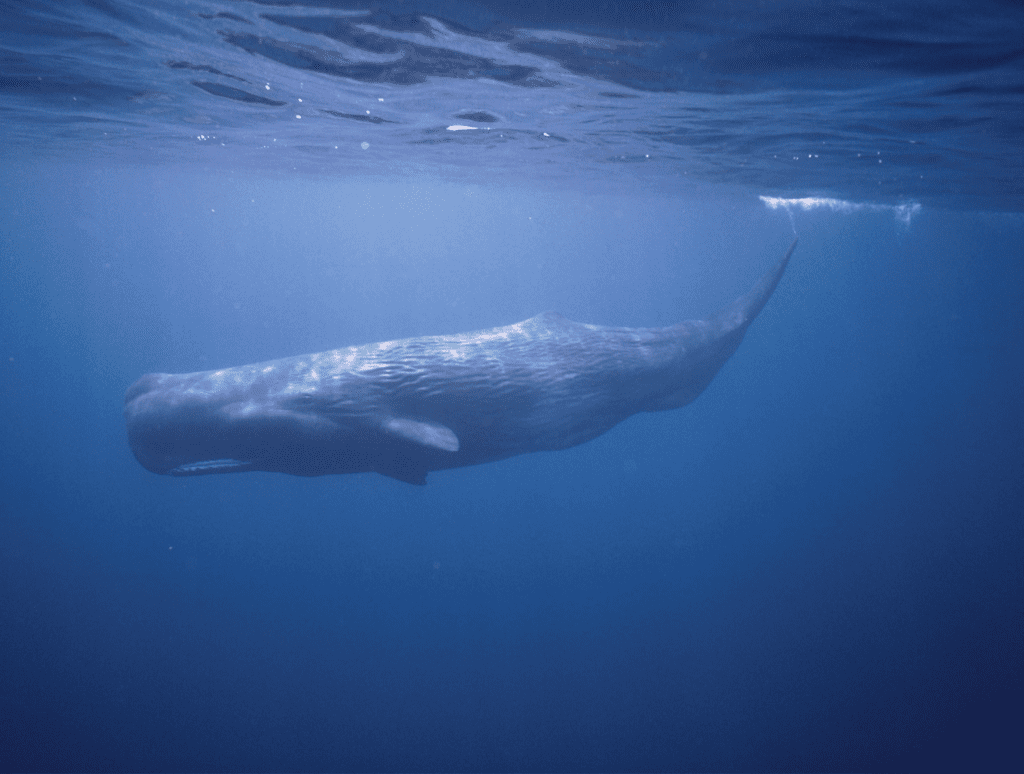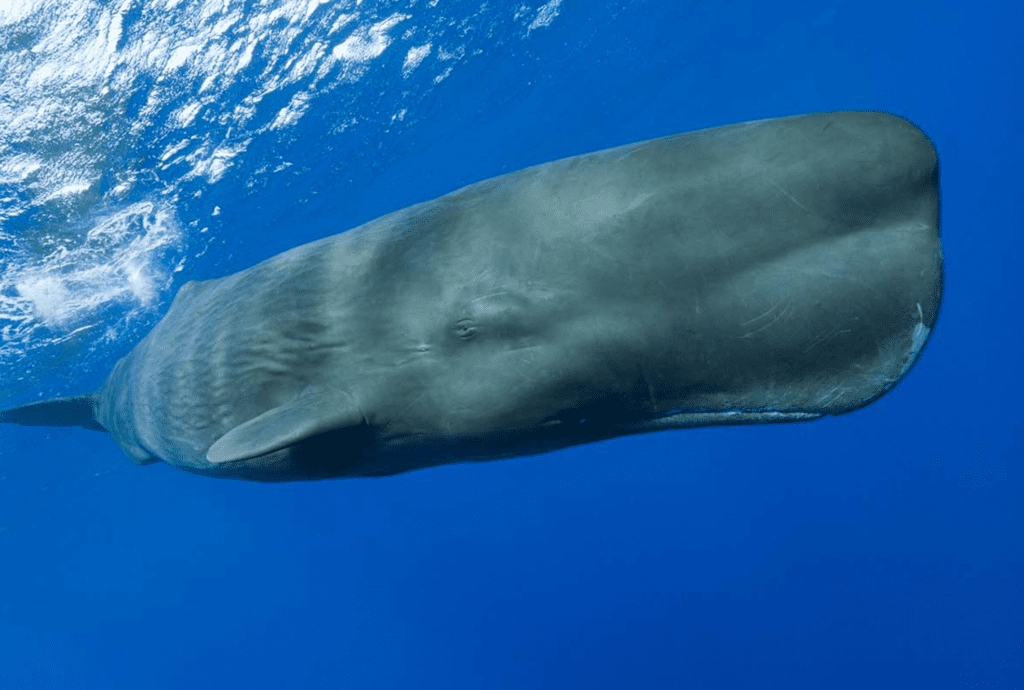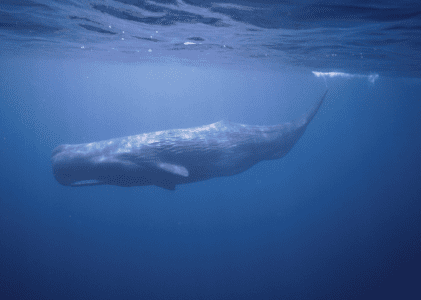Which animal has the heaviest and largest brain : Sperm whale has largest brain weighing about 8 kg (18 lb). Average brain weight of human brain is 1.3 to 1.5 kg (2.9 to 3.3 lb) while an Elephant’s brain weighs over 5 kg (11 lb).
Sperm Whale: Animal with heaviest and largest brain
The sperm whale or cachalot is the largest of the toothed whales and the largest toothed predator. Physeter macrocephalus is scientific name for the Sperm Whale. An adult males measuring up to 20.7 metres (68 ft) long and weighing up to 80 tonnes (79 long tons; 88 short tons).

Table of Contents
What Animal Has the Biggest Brain? Exploring the Fascinating World of Animal Intelligence
Animals have always been a subject of fascination for humans. From their behavior and communication to their unique physical and cognitive abilities, animals have captured our imagination and inspired us to learn more about them. One aspect of animal intelligence that has particularly intrigued scientists and animal enthusiasts alike is the size of their brain. Let’s explore the animal kingdom to find out which animal has the biggest brain and what it means for their intelligence.
What is Brain Size and Why Does it Matter?
Brain size refers to the physical size of an animal’s brain. While it’s not the only factor that determines an animal’s intelligence, it is often used as a proxy for cognitive ability. This is because larger brains have more neurons and synaptic connections, which can enable more complex cognitive processes such as problem-solving, decision-making, and learning.
The Top 5 Animals with the Biggest Brains
- Sperm Whale: The sperm whale has the biggest brain of any animal on earth, weighing in at a whopping 17 pounds (7.8 kg). This is roughly six times larger than the brain of a human!
- Elephant: Elephants have the second-largest brain of any land animal, weighing around 11 pounds (5 kg). This makes them highly intelligent creatures, capable of problem-solving, empathy, and social bonding.
- Dolphin: Dolphins have a brain that is second in size only to the sperm whale, weighing around 3 pounds (1.4 kg). They are highly social animals with a remarkable ability to communicate and use tools.
- Orca: The orca, also known as the killer whale, has a brain that weighs around 5.5 pounds (2.5 kg), making it one of the most intelligent marine mammals.
- Human: While not technically an animal, humans have the largest brain relative to body size of any species, with an average brain weight of around 3 pounds (1.4 kg).
Also Read: Willow Tree: Everything You Need to Know About Growing, Care, and Uses
What Factors Affect Brain Size?
While brain size is often used as a measure of intelligence, it’s important to note that it’s not the only factor that determines an animal’s cognitive abilities. Other factors that can affect intelligence include the number of neurons and synaptic connections, the organization of the brain, and the presence of specialized brain regions for certain tasks.
Is brain size the only factor that determines an animal’s intelligence?
No, brain size is just one of many factors that can affect an animal’s intelligence. Other factors such as the number of neurons and synaptic connections, the organization of the brain, and the presence of specialized brain regions for certain tasks also play a role.
Why do larger animals have larger brains?
Larger animals require larger brains to control their complex bodily functions and behaviors.
Are there any downsides to having a large brain?
Yes, having a large brain requires a lot of energy to maintain, which can put a strain on an animal’s metabolism and limit their physical abilities.
Is there a correlation between brain size and intelligence within a species?
Generally speaking, there is a positive correlation between brain size and intelligence within a species. However, this is not always the case, as the organization and specialization of the brain can also play a significant role in determining cognitive abilities.
Are there any animals with smaller brains that are highly intelligent?
Yes, there are many examples of animals with smaller brains that exhibit impressive cognitive abilities. For instance, the octopus has a relatively small brain, but it is highly specialized and capable of complex problem-solving and learning.
Can brain size change over the course of an animal’s life?
While brain size can vary slightly depending on an animal’s environment and experiences, it generally remains relatively stable over the course of an animal’s life.
Is it ethical to study animal intelligence and brain size?
The study of animal intelligence and brain size can provide valuable insights into the cognitive abilities and behavior of different species. However, it is important to conduct this research in an ethical manner that takes into account the well-being of the animals involved. Many researchers use non-invasive techniques such as behavioral observation and brain imaging to study animal brains and behavior.
What are some practical applications of studying animal intelligence?
Studying animal intelligence can have many practical applications, such as improving animal welfare, understanding the evolution of the brain, and developing new technologies inspired by animal behavior and cognition.
Body Size and Brain Size Relation:
Brain size generally vary as per body size. However, the relationship isn’t proportional as the brain-to-body mass ratio may differs. The biggest proportion found is in the Shrew. Averaging brain weight across all sets of well evolved creatures, it observes a power law , with an exponent of around 0.75. There are valid justifications to anticipate a power law, for an instance, the body-size to body-length relationship keeps a power law with an example of 0.33, and the body-size to surface-area relationship observes a power law with a type of 0.67.

At the point when the mammalian brain increase in size, not all parts increment at similar rate.In specific, the bigger the brain of an animal, the more fraction taken up by the cortex. Subsequently, in the species with the biggest brains, the vast majority of their volume is loaded up with cortex, this applies not exclusively to Humans, yet in addition to creatures like dolphins, whales or elephants. The development of Homo sapiens over the beyond 2,000,000 years has been set apart by a consistent expansion in brain size, yet quite a bit of it very well may be represented by comparing expansions in body size.
Also Read about Devil Fish
Why sperm whale is named sperm whale ?
They are named after the waxy substance (spermaceti) found in their head. The spermaceti helps them focus sound. It was also used in candles, lights etc.

Are Sperm whales Human friendly?
Do sperm whales attack Humans? While sperm whales for the most part retreat from ships, on exceptionally intriguing events they have been known to slam little boats. Scientific community believes that they are not aggressive and these event are just accidents.
Conclusion:
The size of an animal’s brain is just one factor that contributes to their intelligence, but it’s a fascinating area of study that has shed light on the cognitive abilities of many different species. From the mighty sperm whale to the intelligent elephant and social dolphin, the animal kingdom is full of fascinating creatures with remarkable brains. As our understanding of animal intelligence continues to evolve, we can look forward to many more exciting discoveries in the years to come.
Learn about Myasthenia Gravis, an autoimmune disease


